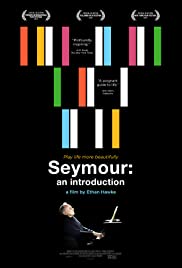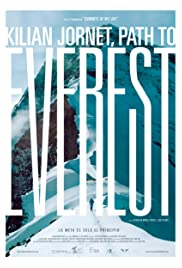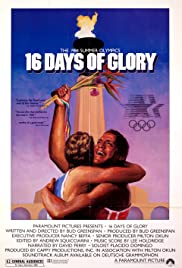
The story of Oliver Cromwell’s head is perhaps the most bizarre, yet least well known, of all tales from English history. From regal burial to exhumation and decapitation, this relic of our only non-royal ruler has travelled a most peculiar path. It has been a gruesome warning to traitors, a secret prize for a soldier, an attraction at an 18th-century peep show, and an object of veneration and derision until it was finally laid to rest in a secret ceremony. CROMWELL’S HEAD, is a one-hour documentary, telling the full story of this extraordinary artifact. CROMWELL’S HEAD unravels a mystery and brings to light a variety of strange tales. By looking at the passions, public and private, aroused by Cromwell and his head, it illuminates how British attitudes to monarchy, democracy and radicalism were formed – and how they have changed, since our civil war over 350 years ago
You May Also Like

In this concert film, ‘Hannah Montana’ star Miley Cyrus performs a slew of hit songs, including ‘Just Like You’ and ‘Life’s What You Make It.’

In 1966, John Harlin II died while attempting Europe’s most difficult climb, the North Face of the Eiger in Switzerland. 40 years later, his son John Harlin III, an expert mountaineer and the editor of the American Alpine Journal, returns to attempt the same climb.

Kuwait’s constitution says that every person has the right to a job, so in some places 20 people are employed for one person’s job. In South Korea, they work so much that a policy has been introduced to turn off computers at the end of the day so that employees can’t work any more. In the US, they give up over 500 million holiday hours each year, while Amazon’s drivers are trying to form a union. Meanwhile, robots are poised to take over most jobs and put the rest of us out of work. Work is so crucial to our identity and what we spend our waking hours on that it is barely noticed anymore. A lot has happened since a group of Puritan priests invented the concept of work ethic in the 1600s, and in the 21st century the very concept of work is in many ways disintegrating. A perfect situation for a filmmaker like Swedish mastermind Erik Gandini, who travels the world to explore what the concept of work means today – if it means anything at all.

Ethan Hawke directs this intimate documentary portrait of classical pianist, composer, author, teacher and sage Seymour Bernstein.

Poland, 1970. When popular protests erupt in the streets due to rising prices, the communist government organizes a crisis team. Soon after, the police use their truncheons and then their firearms. The story of a rebellion from the point of view of the oppressors.

Three renowned chocolatiers – Maribel Lieberman, Susumu Koyama and Mikkel Friis-Holm – take us through the process of craft chocolate-making all the way from the tree to the final chocolate piece. On their journey, each of them finds how important it is to know the roots of their primer material – the cacao bean, and how they can highly impact the lives of the people involved in the chocolate production chain

Surrounded by the mountains and people who are his inspiration, in ‘Path to Everest’, the mountain athlete Kilian Jornet reveals his most intimate fears, contradictions and passions. Summits of My Life is the personal project of Kilian Jornet, in which for five years he has traveled to some of the most important peaks of the planet to try to establish FKT (fastest known time) of ascent and descent of some of the most emblematic mountains of the world. The project is closely linked to values and a way of understanding the purist and minimalist mountain. The experiences lived in each challenge have been captured in different films.

In 1960, United Nations: the Global South ignites a political earthquake, musicians Abbey Lincoln and Max Roach crash the Security Council, Nikita Khrushchev bangs his shoe denouncing America’s color bar, while the U.S. dispatches jazz ambassador Louis Armstrong to the Congo to deflect attention from its first African post-colonial coup.

Documentary about the connection between diet and the brain.

The definitive photographic record of the 1984 Los Angeles Olympics, told “from the inside” through the lives of the participants, the words of David Perry, and the singing voice of Placido Domingo. From the opening to closing ceremonies, this unique style of storytelling shows a side of the Olympic Games not seen by television audiences.

Masha Drokova is a rising star in Russia’s popular nationalistic youth movement, Nashi. A smart, ambitious teenager who – literally – embraced Vladimir Putin and his promise of a greater Russia, her dedication as an organizer is rewarded with a university scholarship, an apartment, and a job as a spokesperson. But her bright political future falters when she befriends a group of liberal journalists who are critical of the government, including blogger Oleg Kashin, who calls Nashi a “group of hooligans,” and she’s forced to confront the group’s dirty – even violent – tactics.

“The Language of the Unknown” accompanies the great saxophonist and his band with a concert on November 3, 2012 in the Salle Pleyel in Paris, and observes the effect of the music on its creators, who are normally much too busy with creating the new than to deal with music already played.